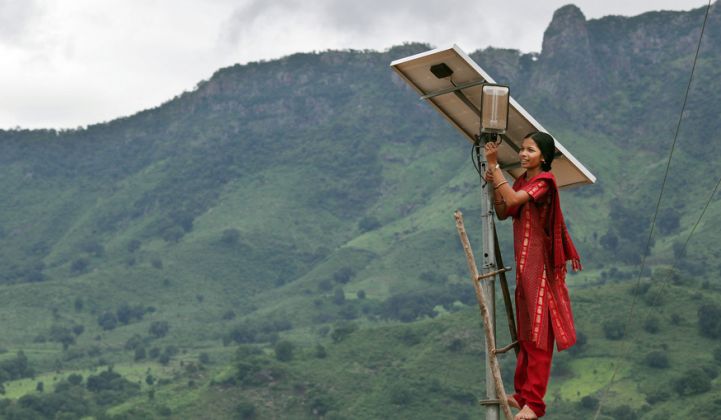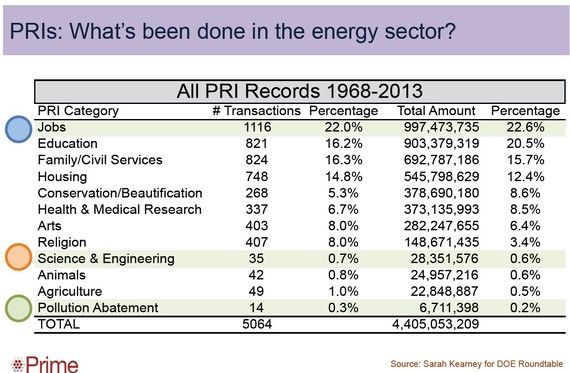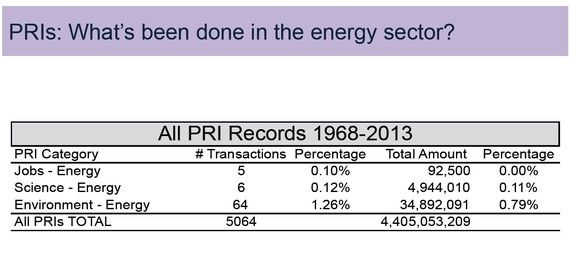Access to finance is the largest near-term barrier to ending energy poverty for hundreds of millions around the world -- and foundation capital may be critical to overcoming it.
Recently, the Swiss fund manager responsAbility, which manages $2.5 billion in assets, unveiled a milestone for clean energy access in developing countries: the first dedicated debt fund to the sector, totaling $30 million.
The fund aims to break down one of the largest financial barriers facing this market, working capital needs, with loans ranging from $500,000 to $3 million for short tenors (six to 24 months) at market returns. That money will allow companies to finally scale their solar offerings and make headway in ending energy poverty with clean energy.
ResponsAbility and its partner investors, including the International Finance Corporation and the Shell Foundation, created this fund because they see tremendous economic opportunity. In sub-Saharan Africa, for example, the market for solar portable lights alone has grown by 90 percent annually for the last four years. In Bangladesh, the home solar system market has expanded at a 60-percent compound annual growth rate for the last decade, reaching 3 million systems. And in India, Prime Minister Modi has pledged to expand solar to 400 million people living beyond the reach of the grid.
Despite this rapid growth, market penetration in key geographies is still only 3 percent to 4 percent -- meaning there's enormous economic opportunity that remains untapped. Innovations in business models, coupled with declines in the cost of components like solar panels (and rising kerosene prices), are opening new opportunities for companies to deliver on that promise with affordable, high-quality products.
How did this fund -- long demanded by the industry -- finally come to be?
A little-known financial tool called a program-related investment (PRI) was essential to making it happen. PRIs are a way for foundations to invest their capital (rather than give it away as a grant) without demanding market-rate returns that may be unachievable due to the nascent stage of a market. That means that for socially or environmentally motivated foundations, it is possible to bridge the "valley of death" between innovation and commercialization that plagues entrepreneurs. It also means they can step in where market failures exist or where purely commercial investors are waiting to see track records proven before investing, due to perceived risk.
But here's the problem: according to the best available data compiled by PRIME, foundations made fewer than 5,000 PRIs between 1998 and 2010, and together those investments constituted less than 2 percent of total grantmaking. Worse, the portion that was dedicated to energy investments was roughly 1 percent of that total (about USD $40 million). That means an important financial tool for unlocking clean energy may be missing out on its potential.
This brings us to the potentially groundbreaking role of PRIs in the responsAbility fund. It turns out the Shell Foundation took a "first loss" position in the capital stack. Taking that more risky position (by committing to lose money first should things deteriorate) helped bring in IFC dollars. In essence, the foundation's relatively small investment not only brought in millions more, but also brought in the reputational heft of the IFC.
More importantly, it provides IFC with its first exposure to a fund dedicated to the needs of this space. That means that if all goes well, the IFC can bring its much-larger balance sheet to future rounds of investment -- something that simply would not have happened absent the concerted efforts, and special financial tools, of the Shell Foundation.
Simon Desjardins, Portfolio Director of Access to Energy at the Shell Foundation, put the role of the foundation's capital and this fund perfectly: "This fund will provide validation to the wider investor community that this market segment is indeed creditworthy." That's exactly where PRIs should play.
With a wide range of conversations swirling thanks to the growing strength of the divestment movement, we in the foundation community have a lot to think about when it comes to making investments as impactful as possible. The Shell Foundation has shown us an incredibly catalytic way to drive investment using real money that sits outside our foundation endowments and grant budgets. We'd do well to follow that lead.
***
Justin Guay is a program officer for climate at the Packard Foundation.





